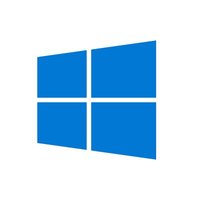Need advice about which tool to choose?Ask the StackShare community!
Manjaro vs elementary OS: What are the differences?
Manjaro and elementary OS are two popular Linux distributions that offer different features and experiences to users. In this comparison, we will highlight the key differences between these two operating systems.
Desktop Environment: Manjaro uses the Xfce desktop environment by default, known for its traditional and lightweight design. On the other hand, elementary OS features its own custom-built desktop environment called Pantheon, which provides a sleek and elegant user interface, reminiscent of macOS.
Package Management: Manjaro utilizes its package manager called Pacman, which is known for its fast and efficient package handling. It also supports the Arch User Repository (AUR), allowing users to access a vast range of community-maintained packages. In contrast, elementary OS is based on Ubuntu and uses its package manager, apt, along with the Ubuntu Software Center for software installation.
System Updates: Manjaro follows a rolling release model, meaning that updates are delivered continuously, providing users with the latest software versions. This ensures that users have access to the most up-to-date features and bug fixes. In contrast, elementary OS follows a fixed release model, where updates are released as major versions after a certain period. This approach provides a stable and predictable environment but may result in slightly delayed access to the latest software versions.
Default Applications: Manjaro comes with a wide range of applications pre-installed, including popular choices like Firefox, LibreOffice, and GIMP. In comparison, elementary OS focuses on providing a minimalistic and clean user experience by including a curated set of applications, such as the Epiphany browser, Files (file manager), and the Pantheon Mail client. Users have the flexibility to install additional applications as per their requirements.
Community and Support: Manjaro has a strong and active community, with extensive documentation and support available. It benefits from its Arch Linux roots and offers a rich ecosystem of user-contributed resources. Similarly, elementary OS has an active community and provides user support through its official forums and documentation. However, being based on Ubuntu, it also benefits from the wider Ubuntu community and resources.
Target Audience: Manjaro is often favored by experienced Linux users and those who prefer a more customizable and hands-on approach. Its rolling release model and access to the AUR make it suitable for advanced users who want the latest software and a wide range of community packages. On the other hand, elementary OS mainly targets users who value a polished and intuitive user interface, seeking a macOS-like experience on their Linux machine. It appeals to users who prioritize simplicity and aesthetics.
In Summary, Manjaro offers a lightweight desktop environment with a rolling release model and extensive customization options, while elementary OS provides a sleek and elegant user interface, a curated set of applications, and stability through a fixed release model.
I liked manjaro a lot, the huge support it has and the variety of tools it provides is just awesome. But due to its parent platform being Arch Linux it has bleeding-edge technology and that meaning, we get updated 'daily', and if we keep updating the system daily, due to the bugs in the recent updates the system sometimes used to crash, this made the OS really unstable. However, one can avoid such crashes using periodical and careful system/package updates. I now use LinuxMint which is based on Ubuntu, and this OS is completely stable with reliable(mostly tested) updates. And, since this OS is backed up by UBUNTU the concerns/questions one can encounter while using the OS can be easily rectified using the UBUNTU community, which is pretty good. Though this is backed up on UBUNTU it most certainly does NOT include the proprietary stuff of UBUNTU, which is on the bright side of the OS. That's it! Happy Computing.
Pros of elementary OS
- Free to use5
- MacOs like feel4
- Fast4
- Stable4
- Elegant3
- Excellent replacement for Windows2
- Good for beginners2
- Very easy to use2
Pros of Manjaro
- Good for beginners9
- AUR is huge8
- Very stable6
- Friendly community5
- Pacman is very fast3
- Highly customizable2
- Nice-looking bootloader2
Sign up to add or upvote prosMake informed product decisions
Cons of elementary OS
- Less customization1
Cons of Manjaro
- Would you give your grandma linux?6
- Occasional freezes if wrongly configured3
- Not highly stable2
- High data requirement frequently1























